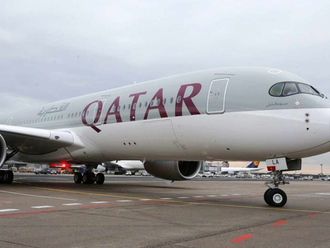Doha: Nobel Peace Prize winner Aung San Suu Kyi said that healthcare policy-makers should move beyond technology and allow spirituality to help shape healthcare for the sake of poor countries.
“The kind of innovative healthcare to which I look forward is the one rooted in human values and in spirituality, which will help us come together as we move forward into the 21st century,” Suu Kyi, Burma’s National League for Democracy Chairperson, said.
Do not look at healthcare innovation only in terms of technology, training and medical education, but in terms of helping poorer societies and getting back to the basics — creating a healthy society, Suu Kyi said.
“It is only in this way that we can be sure that our world, which is getting smaller by the day, will be the happier place for all of us to live in,” she said at a keynote address at the World Innovation Summit on Health in the Qatar capital.
If people can live together in serenity, the best healthcare will be provided, she said.
“We will be providing our people with the best healthcare possible. We need the basic material and necessity to shape this, but we also need a kind of spiritual value that will ensure that we build a healthy society,” she said.
“Globalisation means that we cannot get away from one another and that in turn means we have to learn to live with one another in harmony, in a state of mutual respect and understanding,” she told her audience of mainly healthcare policymakers experts and health innovation leaders.
Recalling the experience of her mother who became a “successful and compassionate nurse” despite challenges, Suu Kyi said that healthcare should always be equated with deep commitment to the well-being of patients.
“Good health is the best fortune you can get. Healthcare is about caring, and without caring, healthcare will not have a meaning,” she said.
The Nobel Peace laureate said that she wanted to launch a programme to improve the lives of Burmese mothers and children amid reports of high maternal and infant mortality rates following decades of health degradation.
However, she said that financial resources were needed to help rebuild her country’s health system.
The two-day health summit in Doha is bringing together more than 600 policymakers, industry experts and practitioners from 67 countries, to explore new approaches and solutions to the most pressing global healthcare challenges, including obesity, mental health, road traffic injuries, accountable care, antimicrobial resistance, end-of-life and patient engagement.











